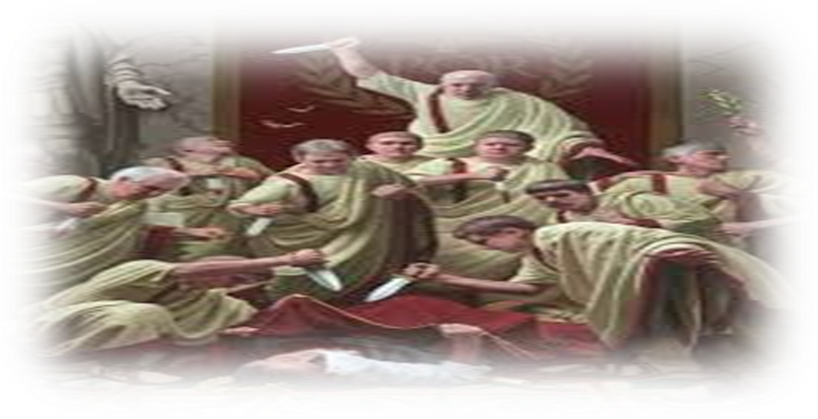Zionists and the Holocaust, The One with a Capital H as Well as the One Taking Place Today
A disturbing reflection by Guillermo Calvo Mahé, April 30, 2024

This reflection is long overdue and deals with facts that have been in plain sight for a very long time but which have been obfuscated, distorting the terrible reality in which we find ourselves and thus, making real solutions to the problems we face unattainable. However, the horrible deliberate slaughter we are experiencing in the Middle East, specifically in Palestine (Hedges, 2024, Al Jazeera, 2017), has brought the issue treated in this reflection to the forefront and, if the phrase “never again” is ever to attain the meaning ascribed to it (primarily as a slogan) following the Holocaust, it is essential that the concepts involved be fully and accurately examined. The topic dealt with in this reflection deals with the sociopolitical phenomenon known as Zionism, a widely used term usually devoid of context which, to an extent, this reflection seeks to provide. Not as a mere academic exercise but as a wakeup call and an existential warning, especially to the Jewish community which has been and continues to be used and abused by Zionists for their own nefarious purposes.
Zionism was originally a positive and important defensive reaction to European antisemitism seeking to encourage persecuted Jews worldwide to unite to aggressively defend their rights to equality and eventually, to establish a special refuge under Jewish control (Eichler, 2013). Many places were considered, including Argentina, Brazil and Uganda but eventually, the Palestinian portion of the Ottoman Empire came to be especially coveted, although it had been inhabited for millennia by, among others, the descendants of Jews who had refused to leave Palestine despite Roman persecution, most of whom had first been forcibly converted to Christianity and then to Islam. Those descendants of the original Hebrew population form the core of today’s Palestinians, albeit intermixed with other nationalities and cultures including Arab migrants.
In its quest to wrest Palestine from its inhabitants (Al Jazeera, 2017), Zionism unfortunately morphed into a rabid subgroup within Judaism but which also included Christian fundamentalist. The latter, although inherently anti-Semitic, see the establishment of a dominant Jewish state in Palestine as a prerequisite for Armageddon and then, the second coming of their messiah (Lewis, 2021) whom they refer to as Jesus the Christ, appellations which that individual never used, his name probably having been Yeshua ben Yosef. Problematically, Zionists attempt to speak for all Jews despite being rejected and considered anathema by many (Glass, 1975) and, instead of reducing antisemitism, have increased it, in many cases actively promoting it in an effort to force recalcitrant Jews to come under their umbrella, especially with respect to securing a Jewish majority in Palestine (Dowty, 2008; Nicosia, 2008; Reinharz, 1985). Indeed, Zionist tactics and strategies have come to mimic those of the German Nazis during the second war to end all wars, an irony of epic proportions. In light of the foregoing, it is essential to understand that Zionism and Judaism are extremely far from synonymous.
Unintended consequences are not always bad things; sometimes they make us reexamine past assumptions and beliefs. That is certainly the case with respect to the current genocide perpetrated by Israeli Zionists against Palestinians in the quest for ethnic cleansing (Hedges, 2024; Borrows-Freedman, 2024) and the support of such atrocities by all the major participants in the second war to end all wars, both Allies and Axis powers. Atrocities involving Israeli genocide and ethnic cleansing ongoing for over three quarters of a century (Al Jazeera (2017), in fact, since the end of the second war to end all wars, a war purportedly fought to eliminate state sponsored crimes of lesse humanidad, although, as in the case of most wars, the purported purpose was far from accurate.[1] In light of that reality, it is past time to conduct an objective review of just what happened during the build up to the second war to end all wars, what really happened during that war and what happened immediately following the war, in order to determine why it occurred, who was to blame and just how widespread the evil was. One question that has been asked but never answered with respect to that war’s immediate aftermath is why the atomic bombing of Japan was not considered genocide or the internment of Japanese Americans in concentration camps not considered a crime of lesse humanidad, such as the crimes with which leaders of the countries that lost that war were charged.[2]
The reality is that history has demonstrated that the Nuremburg trials and their Tokyo counterparts (Sellers, 2010; Buruma, 2023) were fraudulent travesties in large part orchestrated to divert attention from massively horrible war crimes committed by the victors, not just violations of human rights during the war but during the preceding centuries. It is therefore no surprise that their high sounding promotion and promises of a better, more just world have proven profoundly empty and that tens of millions died in vain, among them, twenty-seven million Russians, as well as the victims of the Holocaust. We celebrate the victims of that Holocaust, the one with the capital H, but dare not look into why it occurred or the role of Zionism in promoting it and turning Germany from a bastion of opportunity for Jews (Reinharz, 1985, chapters 3 and 4)[3], into their assassin, a question much more than just relevant in analyzing the nature of Zionism and its goals in light of the murderous nature of Zionism today (Rossinow, 2018), always noting that Zionism and Judaism are very far from synonymous. Indeed, during the first half of the twentieth century as it is today, Zionism is the prime promoter of antisemitism.
Very few people realize that during the first war to end all wars, the vast majority of Jews everywhere in the world were pro-German, including those in Germany, Russia and the United States, and that Zionists, betraying the majority of Jews everywhere, were tasked by the British with orchestrating the defeat of the Central Powers (Germany, Austria Hungary and Turkey) by goading the United States into entering the war on behalf of the Triple Entente (the United Kingdom, France and for a time Russia) in exchange for the land occupied for millennia by Palestinians (Cornelius, 2005; Stein, 1961). That was done and was the main reason that Germany, devastated in the post war “peace”, turned on its patriotic Jews, i.e., because Zionists claimed to have acted on behalf of Jews worldwide, without, of course, having the right to make that claim.
That such Zionists actions would lead to a massive increase in antisemitism was not only understood by Zionist leaders but was an important goal as they hoped that the extremely talented and productive Jewish community in Germany would be forced to immigrate to Palestine. That the costs of that massive and vituperous increase in antisemitism would be horrendous was irrelevant as, is the case of today’s genocide in Palestine, the ends, any ends at all, justified the means. However, German Jews were not as easy to manipulate as Zionists hoped so in 1933, well before the Holocaust, the one with the capital H, the World Zionist Organization, again acting in the name of all Jews, formally declared war on Germany, economic war to be sure, and organized a worldwide embargo on trade with Germany much as the United States has done this millennium with numerous countries, including Cuba, Venezuela, Iran and North Korea, and increasingly with Russia and China. The Zionist hope was that Germany would overreact and thus, that its Jewish population would either emigrate to Palestine voluntarily or be expelled. Zionists actually facilitated such emigration in collaboration with Adolf Hitler, on amicable terms, by negotiating what became known as the Transfer Agreement. All of the foregoing is clearly documented for anyone interested in the truth. See for example, “The Transfer Agreement and the Boycott Fever, 1933” (Walensky, 1987), a study published by someone with profound antizionist sentiments, to be sure, and thus attacked as unreliable, although, while its opinions and conclusions may be unsettling, even troubling to many, the facts are impeccable and are also documented by Jewish sources well-disposed towards Zionism (see Weiss, 1998).
The foregoing information is shared, not to justify the Holocaust, or to deny it, but to illustrate the nature of Zionism, an abomination to true Judaism, one willing to sacrifice anyone and anything in order to attain its delusional dreams of power and dominion. Domination not only over all Palestinians (or at least any that survived) but also of all Arabs and all Muslims, all in a sick parody of the Nazis final solution to the Jewish problem, the latter, a solution in large part crafted with the help of hypocritical Zionists themselves. Given that Zionists were willing to risk the death of six million Jews in order to appropriate the Palestinian homeland, their actions today putting the world at risk of nuclear holocaust ought not to shock or surprise us.
Most Zionists have always believed that genocide is an acceptable tool, taking the cue from the numerous instances in Hebrew history where it was used against their opponents, purportedly under divine command (Lemos, 2023). The examples are legion (most contained in the Torah) starting with the exodus from Egypt, the annihilation of Jericho, etc. Many have been cited by current Israeli leaders, including Israel’s prime minister, foreign minister and minister of defense as examples to follow with reference to the Palestinian people, more than 24,000 of whom, as of the date of this reflection (April 30, 2024), have been massacred by the Israeli Defense Forces, the vast majority of them defenseless women and children, many in obvious cold blood with the location of mass graves now a normal occurrence. Events celebrated in festive dancing and songs not only by Israeli soldiers, but more disturbingly, by Israeli children.
The so-called law of unintended consequences all too frequently results in terrible disasters and one might take the position that the horrible experiences involving antisemitism during the last century involved that phenomenon, but that would be a mistake. The consequences of Zionism were foreseen, intentional and lasting, impacting millions of people every day. The crux of this reflection is that today’s Zionist conduct, to the detriment of Jewish interests as well as to that of Zionism’s opponents, is not new. And perhaps, as an aside, to note how ironic it is that the three branches of the Abrahamic religion, Judaism, Christianity and Islam seem to have adopted the fratricide of Abel by Cain as their guiding principle.
A reading of the sources and suggested readings below makes the foregoing absolutely clear and it is the author’s hope that readers, disturbed by what is alleged in this reflection, will read, digest and analyze them. Many are available on line. The author has reached the conclusion that with the help of Zionists leaders, millions of Jews were the victims of genocide during the first half of the twentieth century. Readers may reach other conclusions. Nonetheless, it seems ironically clear that Zionism, which was a reaction to the crimes against many hundreds of thousands, if not millions, of Jews, the victims of antisemitism throughout Europe during the past two millennia, have used the promotion of antisemitism as the most successful tool in their arsenal. An arsenal not really meant to protect the Jewish people but to consolidate power among a select group within Judaism, to steal their neighbor’s land, and to murder millions directly and indirectly through manipulation of Zionist allies in the United States and ironically, in Europe. Europe, where antisemitism was prevalent for millennia while the Islamic world, including Palestine, was the only place where Jews, as people of the book, were provided refuge and a modicum of opportunity.
How sick is that?[i]
Sources and Suggested Readings
Adams, Charles (2000): When in the Course of Human Events; Rowman & Littlefield Publishers, Lanham, Md.
Al Jazeera (2017): “The Nakba did not start or end in 1948: Key facts and figures on the ethnic cleansing of Palestine; Al Jazeera Media Network, May 23, 2017, Doha, Qatar, available at https://www.aljazeera.com/features/2017/5/23/the-nakba-did-not-start-or-end-in-1948
Author not provided (2009-2024): “Walter Rothschild and the Balfour Declaration”; The Rothschild Archive, London, available at https://www.rothschildarchive.org/family/family_interests/walter_rothschild_and_the_balfour_declaration.
Borrows-Freedman, Nora (2024): “News highlights for week 29 of Israel’s genocide in Gaza”, The Electronic Intifada, April 26, 2024, available at https://electronicintifada.net/blogs/nora-barrows-friedman/news-highlights-week-29-israels-genocide-gaza.
Buruma, Ian (2023): “What the Tokyo Trial Reveals About Empire, Memory, and Judgment”; The New Yorker, October 16, 2023; New York City, available at https://www.newyorker.com/magazine/2023/10/23/judgment-at-tokyo-world-war-ii-on-trial-and-the-making-of-modern-asia-gary-j-bass-book-review.
Cornelius, John (2005): “The Hidden History of the Balfour Declaration”; Washington Report, November 2005, pages 44-50; The Balfour Project, Edinburgh available at https://balfourproject.org/hidden-history-of-the-balfour-declaration/.
Dowty, Alan (2008): Israel/Palestine; Polity, Cambridge.
Eichler, William (2023): “Herzl’s Troubled Dream: The Origins of Zionism”; History Today, Volume 73 Issue 6 June 2023; London, available at https://www.historytoday.com/archive/feature/herzls-troubled-dream-origins-zionism.
Glass, Charles (1975): “Jews against Zion: Israeli Jewish Anti-Zionism”; Journal of Palestine Studies, Vol. 5, No. 1/2 (Autumn, 1975 – Winter, 1976), pp. 56-81; Taylor & Francis, Ltd., Milton Par, UK, available at https://www.tandfonline.com/doi/abs/10.2307/2535683.
Hedges, Chris (2024): “Sermon for Gaza”; The Chris Hedges Report, Substack, San Francisco, available at https://chrishedges.substack.com/p/sermon-for-gaza?utm_source=share&utm_medium=android&r=lwzkv&fbclid=IwZXh0bgNhZW0CMTEAAR17pfnFGuZ3ZGP2Wj1guX2k6qrWN7AgI2LGQIMYO_Dr4UHnalHMWjZlI-c_aem_AbTSxFZAxB4Cvr3pniwm4uG2VMyuWQezq8E6yMdrVCyx8IXi5tmu9TSj10nkcpHNvZvfRRfUhDozw_2HR5hQ-3cv&triedRedirect=true.
Henderson, Dean (2024): “The Federal Reserve Cartel: The Eight Families”, a five part series; Global Research, January 23, 2024, Montreal, available at https://www.globalresearch.ca/the-federal-reserve-cartel-the-eight-families/25080.
Lemos, T.M. (2023): “Chapter 6, Genocide in Ancient Israelite and Early Jewish Sources”, pp. 185 – 208, The Cambridge World History of Genocide, Part II – The Ancient World; Cambridge University Press, Cambridge.
Lewis, Donald M. (2021). A Short History of Christian Zionism: From the Reformation to the Twenty-First Century; Inter Varsity Press, Lisle, Il.
Murray, Craig (2024): “Worse than You Can Imagine”; Consortium News, April 26, 2024, Arlington, Va., available at https://consortiumnews.com/2024/04/26/craig-murray-worse-than-you-can-imagine/?eType=EmailBlastContent&eId=ab6bdf76-7c5d-4a0f-9d4f-479c7df1a70b.
Nachmani, Amikam (2005): Great Power Discord in Palestine: The Anglo-American Committee of Inquiry into the Problems of European Jewry and Palestine 1945-46; Routledge, Oxfordshire.
Nicosia, Francis R (1985): The Third Reich and the Palestine Question. 2013 reprinting, Transaction Publishers; London.
Nicosia, Francis R. (2008): Zionism and Anti-Semitism in Nazi Germany; Cambridge University Press, Cambridge.
Reinharz, Jehuda (1985): Chaim Weizmann, the Making of a Statesman, chapters 3 and 4, Brandeis University Press; Waltham, Ma.
Rossinow, Doug (2018): “The Dark Roots of AIPAC, ‘America’s Pro-Israel Lobby’”; The Washington Post,March 6, 2018, Wahington, DC.
Segev, Tom (1994): The seventh million: the Israelis and the Holocaust; Hill and Wang, New York City.
Sellers, Kirsten (2010): “Imperfect Justice at Nuremberg and Tokyo”; European Journal of International Law, Volume 21, Issue 4, November 2010, pp. 1085–1102; Oxford University Press, Oxford, available at https://academic.oup.com/ejil/article/21/4/1085/418156.
Stein, Leonard Jacques (1961): The Balfour Declaration; Vallentine, Mitchell, London; (1983 edition) Magnes Press, Hebrew University, Jerusalem.
Teveth, Shabtai (1985): Ben-Gurion and the Palestinian Arabs: From Peace to War. Oxford University Press; Oxford.
Walendy, Udo (1987): “The Transfer Agreement and the Boycott Fever, 1933”; Historical Facts Number 26, Verlag für Volkstum und Zeitgeschichtsforschung, available at https://www.scribd.com/document/590331276/TheTransfer-Agreement-And-The-Boycott-Fever-Of-1933-UdoWalendy. Weiss, Yf’aat (1998): “The Transfer Agreement and the Boycott Movement: A Jewish Dilemma on the Eve of the Holocaust”; Yad Vashem Studies Vol. XXVI, Jerusalem 1998, pp 129-172, available at https://www.yadvashem.org/odot_pdf/Microsoft%20Word%20-%203231.pdf
[1] The American Civil War is an obvious example. The claim that it was fought to eliminate the scourge of African slavery is obviously untrue, witness President Abraham Lincoln’s first inaugural address and the fact that slavery continued in numerous Union states throughout that war, but continues to be taught and stressed as a fact. In truth, Abraham Lincoln was a rabid racist who felt Africans were inferior, should never attain political rights in the United States and indeed, should all be shipped out of its jurisdiction, preferably to Liberia or Panama, as he felt that Africans and whites could never, and should never, live together. See, e.g., Adams, 2000.
[2] Those objectives are critical but beyond the scope of this reflection and indeed, as it has been for over three quarters of a century, much of the required research seems impossible given existing legal prohibitions on research and expression, and the relentless classification of essential information as top secret. One wonders why? But even if the information were readily available, the required report would be beyond the scope of even detailed treatise, requiring the free exchange of diverse opinions to untangle the incredible web deliberately woven to obfuscate the truth we need to know. Thus, of course, the scope of this brief reflection is much more limited, but perhaps, nonetheless essential.
[3] Most Russian and German Jews supported the Germans, as did much of the largely anti-British Irish. Indeed, the other principle Central Power, the Ottoman Empire was also supported by most of the Jews and indeed, both David Ben-Gurion and Yitzhak Ben-Tzvi volunteered for the Turkish Army and, when they were rejected, moved to the US and tried to recruit Jews to set up a Jewish unit in the Turkish army, see Teveth, 1985, pp. 25, 26.
[i]
_______
© Guillermo Calvo Mahé; Manizales, 2024; all rights reserved. Please feel free to share with appropriate attribution.
Guillermo (“Bill”) Calvo Mahé (a sometime poet) is a writer, political commentator and academic currently residing in the Republic of Colombia (although he has primarily lived in the United States of America of which he is also a citizen). Until 2017 he chaired the political science, government and international relations programs at the Universidad Autónoma de Manizales. He is currently the publisher of the Inannite Review, available at Substack.com, an intermittent commentator on radio and television, and, an occasional contributor to diverse periodicals and publications. He has academic degrees in political science (the Citadel), law (St. John’s University), international legal studies (New York University) and translation and linguistic studies (the University of Florida’s Center for Latin American Studies). However, he is also fascinated by mythology, religion, physics, astronomy and mathematics, especially with matters related to quanta and cosmogony. He can be contacted at guillermo.calvo.mahe@gmail.com and much of his writing is available through his blog at https://guillermocalvo.com/.









